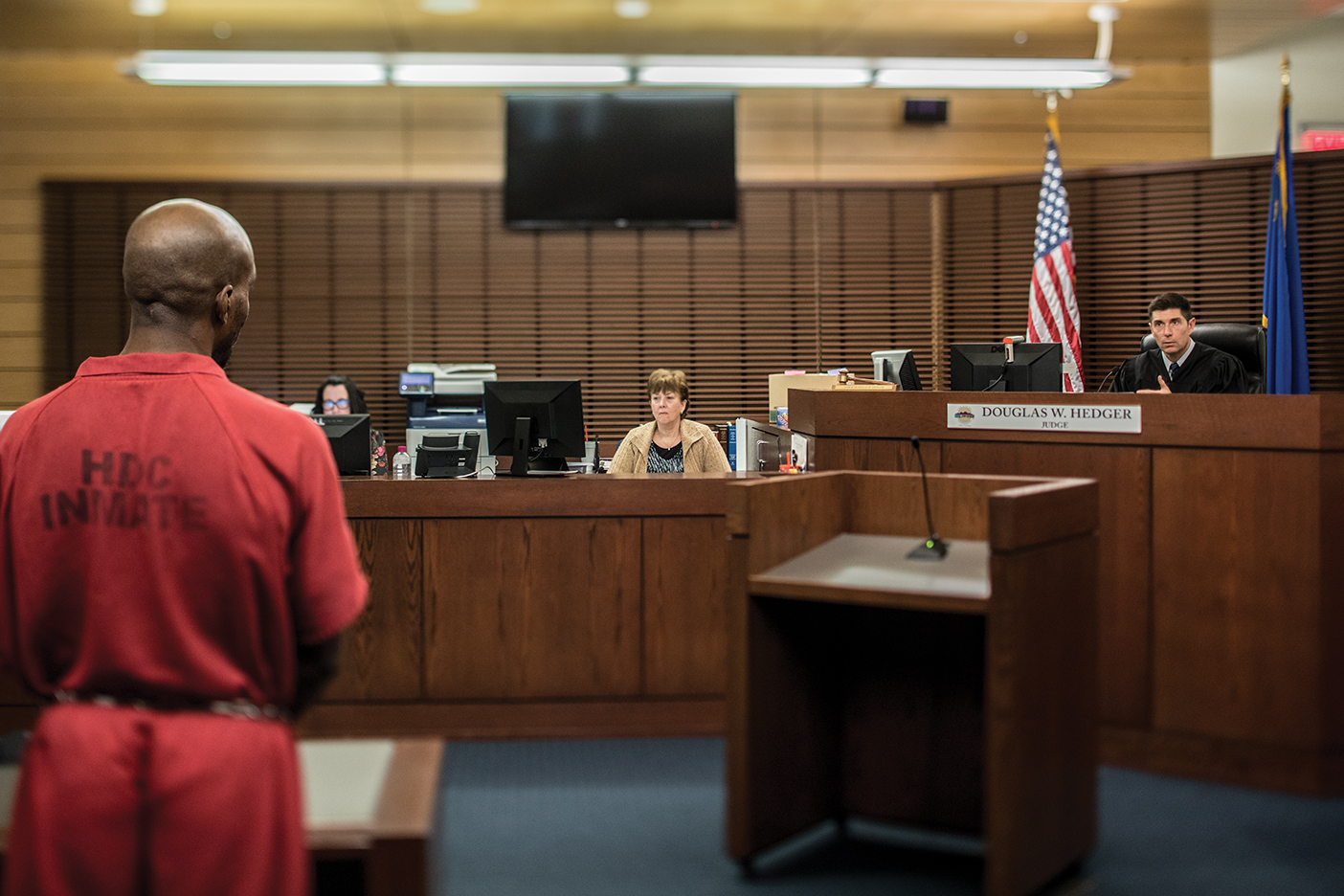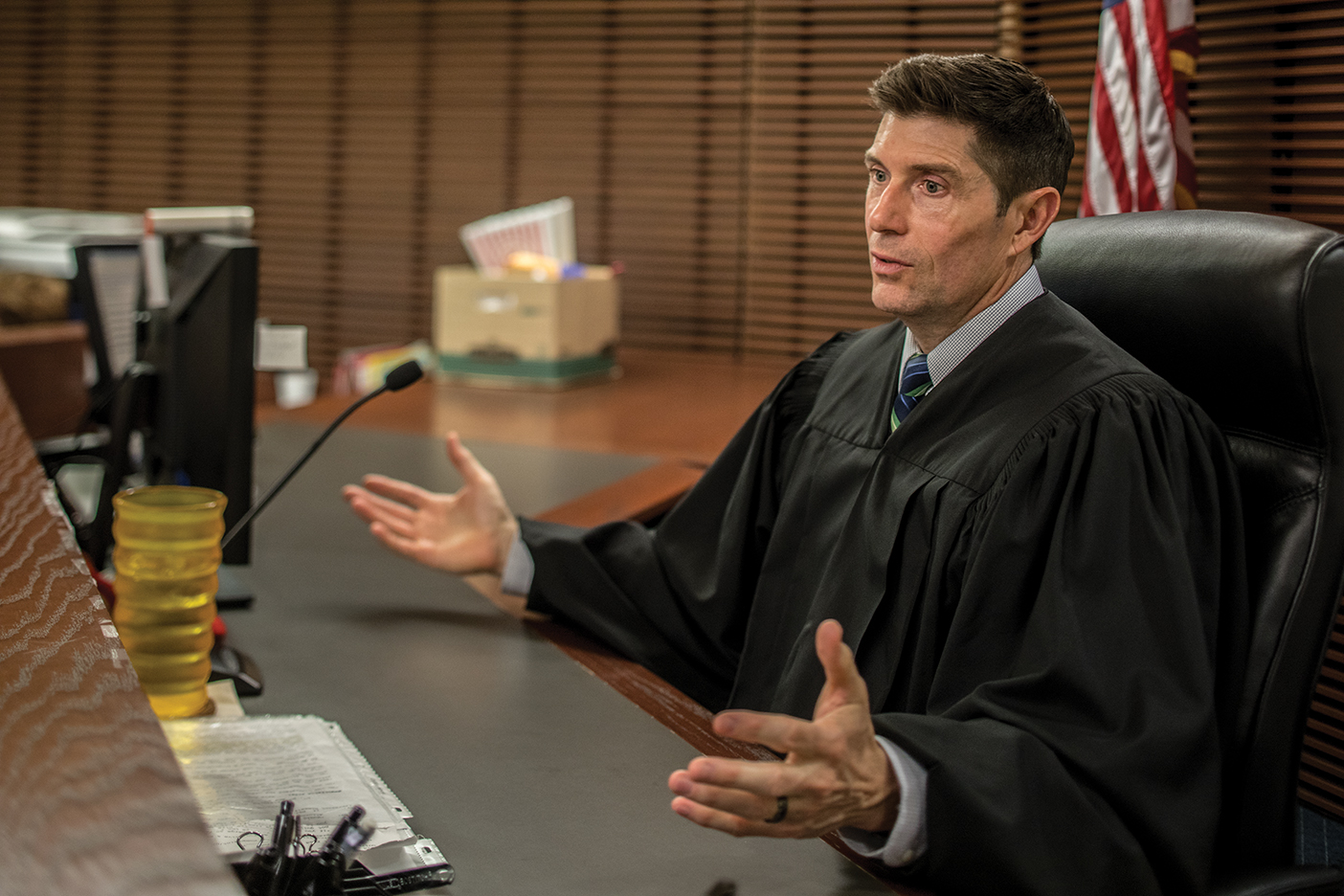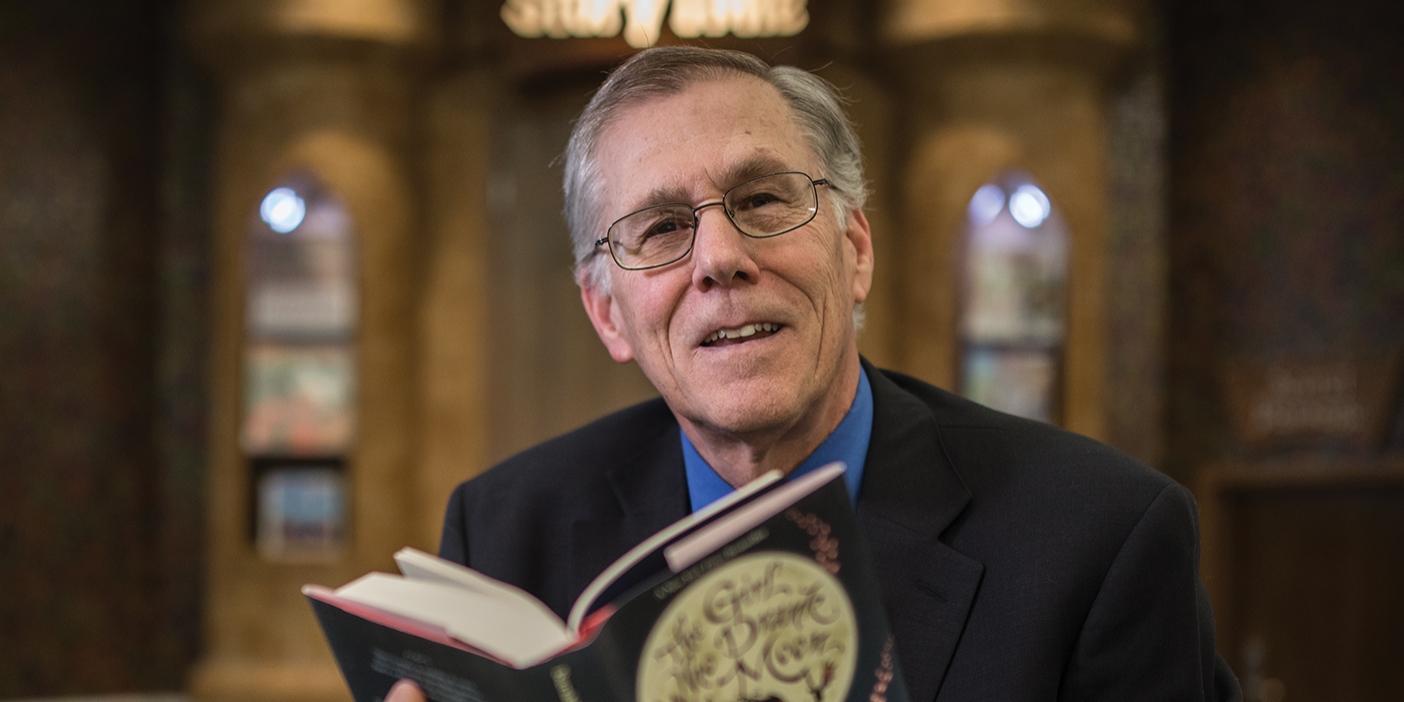A judge trying to help repeat offenders created a special court that has provided hope and healing for addicts.

Douglas W. Hedger (BA ’87) calls it his awakening. In 2003, as a newly elected judge on the Henderson Municipal Court in Nevada, he realized that he was seeing the same faces again and again—offenders with addictions and underlying mental-health problems. As a judge he had a duty to hand down an appropriate sentence, but it all seemed so futile. “I thought, ‘Okay, for this person, it’s the 10th time. . . . I have to give them six months in jail or else the court is a joke. But it makes no sense because . . . I’m going to see them two weeks after they get out of jail because they will still have their addiction.’”
For years as a criminal defense attorney, he had witnessed the devastating effects of addiction firsthand, as many of his clients seemed to be caught in an endless cycle of substance abuse and crime. “I saw the connection of drugs and alcohol, and co-occurring disorders as well, and how that would influence their criminal activity,” he says. “It was tragic.” Now, as a judge, he determined to find a way to use the law as a tool to lift people up—not just to punish them.
So Hedger created the Assistance in Breaking the Cycle (ABC) Court in Henderson. “Rather than just a drug court, which is a great vehicle, this is kind of all-encompassing,” Hedger says. “[We] address all the issues to actually give the person a shot at becoming a productive citizen.” Partnering with the local police, the city’s attorney and public-defender offices, and a variety of community organizations, Hedger positioned the ABC Court to help repeat offenders in three areas: addressing substance-abuse challenges, receiving treatment for mental-health concerns, and developing life skills.
Thanks to community involvement and donations, the daily cost for each person in the ABC Court is a fraction of that of the jail system. Local doctors and dentists provide needed care. Businesses provide jobs to program graduates.
“For this person, it’s the 10th time. . . . I have to give them six months in jail or else the court is a joke. But it makes no sense because . . . I’m going to see them two weeks after they get out of jail because they will still have their addiction.” —Douglas Hedger
Individuals in the program receive a case manager who tailors the offerings to meet their specific needs and to walk them through each phase. They reside in a sober-living house while recovering from their addiction, and then the court helps them to develop the skills they need to transition into a new, stable lifestyle.
“They start with counseling, but as they progress in getting their addiction under control, they start working on life skills,” Hedger explains. “Many of them have none. They’ve never had a job; they didn’t finish high school. We work with them to get their GED, to get job training, to learn how to fill out an application and do an interview.”
Since the court was established in 2009, 43 people have successfully graduated from the program. Only nine of these have reoffended. Hedger says, “They’ve gone from being in jail to . . . working, living on their own, having a family.”
Hedger says that’s the best part of his job—“seeing the graduates go on and change their lives.”
One recent ABC Court graduate, Heather, made an extraordinary effort to turn her life around. Her recovery was especially difficult, Hedger explains, because she’d become accustomed to her lifestyle as a prostitute. Starting at an entry-level, minimum-wage job in her late 20s was a challenge, but she did it, Hedger says. “She’s been so focused on wanting to change her life. It took some time for her mindset to change, but she’s 13 months clean now. She’s got a full-time job; she’s got a bank account; she’s in an industry where she has the ability to get further licensing. . . . She’s proud of herself for turning her life around.”

Another graduate, a man named Stewart, had struggled with alcoholism for 50 years. “Stewart actually had a very successful real-estate career, grew up in a middle-class family, went to high school and college,” says Hedger. “[He] fought in Vietnam. And then, as the alcoholism got more pronounced in his life, everything just spiraled down. His wife left him after 30 years of marriage, and he went from all of that to literally being homeless.” Through the ABC Court, Hedger helped Stuart turn his life around, overcoming his addiction and rebuilding relationships with his family.
Hedger says the greatest compliment he ever received from his clients as a defense attorney was their gratitude for his compassion and respect. “I’ve tried to carry that over as a judge, too,” he says. “I think that’s what most people are looking for: ‘I know I made a mistake, but just treat me like a human being.’ . . . Getting them to see their own potential is the key factor for these individuals.”












